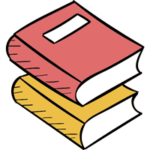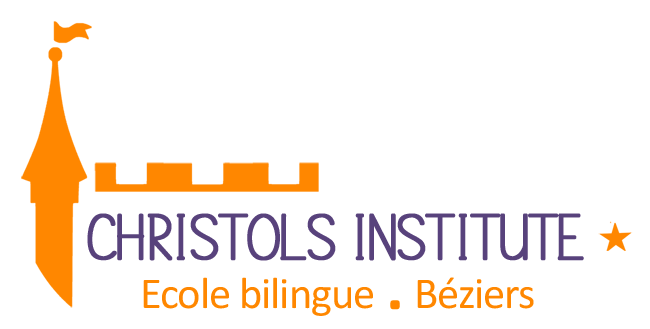- contact@christolsinstitute.com
- Mon - Fri : 7h30 - 18h30
- +33(0)6 01 98 08 00
THE MONTESSORI PRESCHOOL
· OPENING IN SEPTEMBER 2024 ·
Find all the information on class times, lunch, nap, and daycare:
Introduction
The Montessori Method
The success of Montessori pedagogy lies not just in its remarkable effectiveness but also in its ability to bring joy to children!
Children aged 2 ½ to 6 years are embraced in a spacious classroom environment where individual development unfolds at a personal pace, fostering skills in cooperation and assistance. Under the guidance of a Francophone educator and an Anglophone assistant, they gain the advantage of authentic bilingual education.
Engaging with Montessori materials stimulates a child's curiosity and aids in the growth of their intellect, psychomotor coordination, observation abilities, and focus.
Beyond mastering the essential basics, your child is nurtured to enhance their curiosity and creativity. They are taught to value their surroundings and their fellow students. They develop persistence and the ability to work with tranquility. They form clear and organized mental images and build a diverse and expansive vocabulary.

Aurélie Pradeloux
Director and Teacher

The Montessori Method
A Child-Centric Environment
Maria Montessori called her educational settings "the children's house." The Montessori method creates a nurturing, joyful, and welcoming space, offering ample room for children to freely explore and grow within a serene, orderly, and aesthetically pleasing environment.
This approach dedicates specialised areas for diverse activities, including a spacious workroom, a cosy reading nook, a miniature vegetable garden, a quiet rest area, and a physical activity space.
In this setting, children are organised into age groups, as seen in the Montessori preschool for ages 3 to 6. Each child progresses at their own pace, in sync with their natural development, guided by their inherent instincts that shape their mental and emotional growth.
Honouring the Child's Developmental Tempo
A child thrives on psychological and intellectual growth by engaging with the world around them—through movement, touch, naming objects, and posing questions. The Montessori philosophy honours these developmental needs by integrating language with the child's visual, tactile, spatial, and auditory explorations.
Thus, a pivotal aspect of education becomes the respect for the child's individuality and the nurturing of their innate curiosity rather than imposing limitations. Educators closely observe their young learners, selecting objects and activities that cater to their interests, thereby facilitating meaningful engagement that is both energetic and sustainable. Activities are introduced with precision, tailored to individual or small group settings, acknowledging that children may not intuitively understand the intended use of materials without guidance. Observations of peers can also inform a child's understanding of material use, and educators ensure these interactions promote correct usage. Through the deliberate articulation of each action and object, children engage deeply in their educational journey.
«The adult can help, but nothing more; the child needs to remain free to manage within their own limits.»
Maria Montessori
Self-Confidence and Error Control
In Montessori education, there's no necessity for adult evaluation or correction; the materials are designed so that children can identify and rectify their mistakes independently. This approach ensures they do not feel judged or discouraged by errors, safeguarding their self-esteem. As children achieve new milestones, they experience joy and pride, motivating them to extend their capabilities and undertake more challenging endeavours.

Bilingual Education
Starting at age 3, your child is welcomed into a bilingual French-English environment. Guided throughout their day by a Francophone educator and an Anglophone assistant, each communicates exclusively in their mother tongue. This immersive approach enables children to learn English through natural absorption, initially understanding and gradually beginning to speak, instinctively using the correct language with each educator.
English acquisition occurs daily through regular activities, play, singing, music, visual arts, theatre, and physical education classes.
French is prioritised in the introduction and follow-up of activities. Reading and writing are taught exclusively in French at the outset. It has been observed that simultaneous literacy in both languages, due to their significant differences in structure and phonetics, may impede mastery of French. As such, literacy in English is introduced once a solid foundation in French has been established, typically around the midpoint of the first year of primary education.
Themes
Covered
PRACTICAL LIFE
As children are schooled at an increasingly young age, it is important to recreate a familiar and warm atmosphere by giving them access to everyday objects.
Manual activities are offered to the youngest to teach them "to do by themselves" the daily tasks: dressing, undressing, maintaining a clean and orderly environment, taking care of oneself and one's hygiene, gardening, cooking, caring for plants and animals... and other tasks that lead the child to concretely organise their own thought, acquire precision in movements, orient themselves in space and time, build logic and conscious relation to the world... in short, acquire all the necessary bases for future learning.
SENSORIAL DEVELOPMENT
Montessori material for sensory education allows the child's mind to organise and their intelligence to be systematically exercised. It enables them to become aware of the world around them by comparing, collecting sensations, selecting, and discriminating. This tangible material allows them, through manipulation and verbalization, to recognise and identify different nuances of colour, smell, size, weight, length, touch, taste, quantities, geometric shapes, sounds...
Activities of practical life and sensorial development are essential preparations for the study of the "fundamentals": reading, writing, and arithmetic. The children will find in them a logical sequence, even a natural conclusion.
LANGUAGE, WRITING, AND READING
Learning to write starts in stages from an early age. Initially, without writing, through a series of preparatory activities, one learns to control movement, preparing the hand to hold a pencil. Then, using drawing forms, the child's hand is guided to master their gesture within different boundaries.
Writing and reading are taught together letter by letter. These are presented by the sound they produce and their associated movement. Children trace them with their fingers on large cursive sandpaper letters then practice on different mediums before writing them on paper. By decomposing the sound, the child deduces which "signs" correspond to it and can even, before knowing how to write them, compose the different sounds with movable letters. Gradually, they become capable of doing the same with words and then sentences of their own choosing and reproduce them in writing.
Reading then develops independently through attractive and progressive workshops and games. The child must access the meaning of what they read, i.e., associate the written word with the corresponding object and not just a composition of sounds.
CALCULATION AND MATHEMATICS
The foundations of mathematics are laid from an early age. Always through manipulation, the child naturally, concretely, and systematically acquires the decimal system, the concept of zero, the nature of the four operations, and fractions throughout their preschool years.
With sensorial and didactic material, your child also discovers geometry, the Pythagorean table, and many other notions of algebra and arithmetic that will be useful even later on.
SCIENCES AND GEOGRAPHY
The study of sciences also allows the child to be in contact with reality and discover the world around them. This seems fundamental for the harmonious development of the child and all the more relevant in our time when they are constantly subjected to the presence of screens, virtual worlds, and city life.
We approach botany, zoology, the discovery of the human body, and geography through outings in nature, cultivating our own vegetable garden, experiments, and sensorial and didactic material respectful of active pedagogy and the Montessori spirit.
Daily Life
Class Time
From 8:00 to 8:30 AM, the individual welcoming of children by their teachers.
From 4:00 to 4:30 PM, children are picked up by their parents directly from the classroom.
Monday, Tuesday, Thursday, and Friday
- 8:30 AM – 11:45 AM and 1:00 PM - 4:00 PM
Wednesday (optional)
- 8:30 AM – 11:45 AM
- 8:00 - 8:30 AM
Students arrive and participate in welcoming rituals.
- 8:30 - 11:30 AM
The day begins with rituals, followed by personalised learning sessions either individually or in small groups. The morning concludes with a period for exchange and discussion.
- 11:30 - 11:45 AM
Children wrap up their morning activities and clean up. Some children help set the table and create a pleasant environment for lunch.
- 11:45 AM - 12:20 PM
Time for outdoor play or gardening activities?
- 12:20 - 1:25 PM
Lunch break.
- 1:25 - 1:45 PM
Nap time and quiet activities like reading, yoga, or simply resting.
- 1:45 - 3:30 PM
A gradual return to activities for the younger children post-nap and continued personalised activities for the others, either individually or in small groups.
- 3:30 - 4:00 PM
Cleanup and regrouping period followed by exchange and story time.
- 4:00 - 4:30 PM
Departure time
School meals
Our school does not currently offer a cafeteria service. For those who wish, children can bring a packed lunch, preferably already hot in a "thermos," as meals will not be reheated by the school. Cutlery and plates will be provided by the school.
The nap
A nap is provided for the youngest and for those who still require it, with a designated room set aside for this purpose under the watchful eye of an assistant. Children are welcome to bring a favourite cuddly toy or pacifier from home to maintain their usual sleep routines. Before the afternoon's activities begin, a period of quiet time is arranged for the other preschoolers. During this time, they can participate in a relaxation session, engage in reading, or listen to stories and music, all within a serene and gentle environment.
Wraparound Care
The school is open from 7:30 AM to 6:30 PM. Wraparound Care is offered to simplify parents' lives outside class hours. In the morning from 7:30 to 8:00 AM and in the evening from 4:30 to 6:30 PM.
Books

We recommend a selection of works that can help you better understand the Montessori pedagogy and support your child at home.
MONTESSORI Maria. L’enfant. Desclée de Brouwer, 2022, 215 p.
MONTESSORI Maria. Le manuel pratique de la méthode Montessori. Desclée de Brouwer, 2019, 166 p.
MONTESSORI Maria. L’esprit absorbant de l’Enfant. Litos Montessori, 2023, 416 p.
Contact
Contact us for any inquiries regarding the school, courses, and registrations.
170 Rue des Christols
34500 Béziers, Hérault
+33(0)6 01 98 08 00
contact@christolsinstitute.com
Newsletter
Sign up for our newsletter to stay updated on the school’s news.
Nous n'avons pas pu confirmer votre inscription.
Votre inscription est confirmée.
- 2024. EDUCATION EN VALLEE D'ORB – Website created by AD-MARKETING
- contact@christolsinstitute.com
